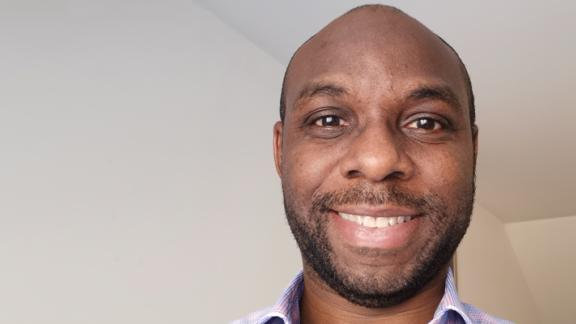A digital approach to managing mental health demand

The success of a mental health app to support primary care staff has led to it being ‘prescribed’ to patients to help them better manage their mental health.
The increased demand for mental health services post pandemic has been immense and the pressure has been felt in all parts of the health service. In primary care we have seen this first hand as more and more patients come through our doors for support while struggling to access secondary, and even voluntary, mental health support.
However, with every new challenge comes new opportunities. As pressure and demand grows, we will rely on new technology and willingness to innovate to develop services that meet the needs of patients. In Bedford, Luton and Milton Keynes ICS, we began our journey during the pandemic when we began using a free app called ShinyMind to support staff with their mental wellbeing.
Embracing digital options
The ShinyMind app is the brainchild of psychotherapist Becca Howard and created in collaboration with the NHS. It was initially developed to help staff deal with the stresses of the pandemic when long hours, unknown illness, isolation from family, and dealing with loss of lives daily was taking its toll. The aim was to have a digital tool that could be used to help staff take some time for themselves and improve their mental wellbeing and so help them cope better at work. From its introduction at our PCN, the app had a huge impact on staff morale. Staff using the app reported lower anxiety and depression scores and better engagement in the workplace. With the new ShinyMind programme, our staff were bouncing back from burnout and had the renewed capacity to engage with patients and look for new and effective ways of working.
“Our PCN staff were so excited by the success they’d seen with the new app that it kickstarted a discussion about how to help our patients see similar results”
Both staff and patients embraced a leap into digital options for care during the pandemic. Our PCN staff were so excited by the success they’d seen with the new app that it kickstarted a discussion about how to help our patients see similar results. As a team we’ve seen the impact the pandemic, cost of living crisis, and other societal factors have had on our patients, but we’ve also struggled to find capacity for everyone who needs support. By embracing our new digital tool, our staff felt more supported and able to start looking beyond ‘survival mode’ and had the headspace to be creative.
We worked with the ShinyMind team to develop a patient-focused offer that would allow GPs to ‘prescribe’ the app to patients across the PCN. The app connects patients to a nominated practitioner who can send positive ‘nudges’ towards resources and activities and monitor patient feedback. Staff and patients responded positively to this new way of working together and the team became excited to take this one step further. Why reach only one patient at a time, when we can pair the app with group consultations? Such was our confidence that we expanded the traditional model of small group consultations to over 50 patients who attended a two-hour session every week over four weeks. It was wonderful to see staff across our PCN so engaged in innovation, so much more empowered to take a lead on a project than where we started during the pandemic.
Exceeding exectations
The outcomes exceeded our expectations. Clinical outcomes for anxiety and depression assessments showed an 80 per cent recovery rate for those on the virtual group programme, and over 90 per cent of patients said they felt more motivated to manage their mental health moving forward. Evidence for large-scale mental health virtual group consultations is rather scant and it was difficult to find any comparative evidence for a similar programme or at a similar scale, but current recovery rates in IAPT services are around 52 per cent and improvements in anxiety and depression scores were comparable between the two services. We have since entered discussions with our ICB about scaling up the programme across other PCNs and supporting our IAPT waiting lists within the ICB footprint.
“We now have an evidence-backed programme of support that uses technology to meet patients where they need us”
For our PCN team, this success has felt like a huge win in the midst of high pressure and continued negative press around primary care and mental health. When faced with overwhelming asks, a lack of capacity can lead to the sensation of being stuck in a rut, doing the same thing over and over. In this sense we were experiencing a similar challenge to our patients who felt overwhelmed by their mental health. Creating space for staff wellbeing led directly to positive change for our team and our patients. We now have an evidence-backed programme of support that uses technology to meet patients where they need us and empowers them to manage their mental health. We have demonstrated that by supporting staff, we can make the space required for innovation.
Dr Tayo Kufeji is GP partner at Newport Pagnell Medical Centre and GP lead and clinical director at The Bridge PCN. You can follow Tayo on LinkedIn or on X @tayokufeji



